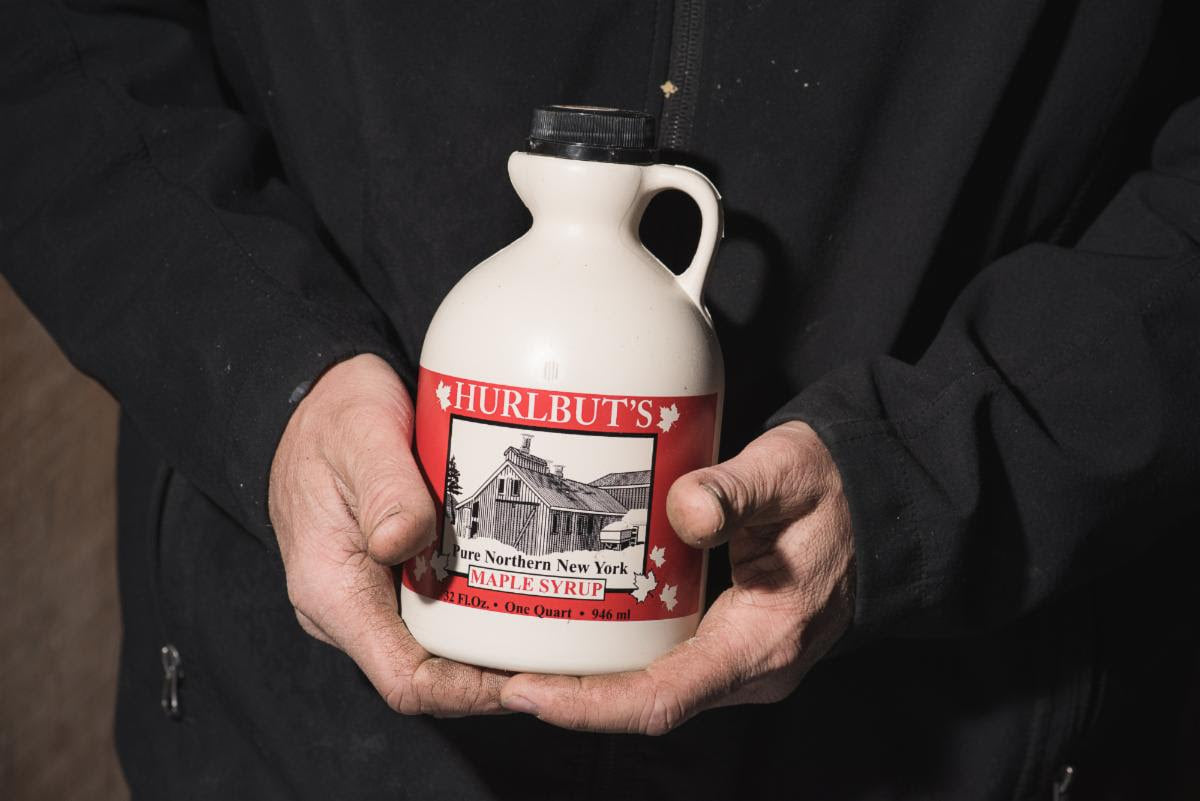03/06/2022
𝗠𝗮𝗿𝗰𝗵 𝗲𝗡𝗲𝘄𝘀 𝗳𝗿𝗼𝗺 𝗚𝗮𝗿𝗱𝗲𝗻𝗦𝗵𝗮𝗿𝗲
http://gardenshare.org/
Sign up for the newsletter: https://bit.ly/3HJyeR5
𝗗𝗲𝘀𝗶𝗴𝗻 𝗼𝗻 𝗢𝘂𝗿 𝗟𝗼𝗰𝗮𝗹 𝗙𝗼𝗼𝗱 𝗚𝘂𝗶𝗱𝗲 𝗖𝗼𝘃𝗲𝗿!
𝗦𝘂𝗯𝗺𝗶𝘀𝘀𝗶𝗼𝗻 𝗗𝗲𝗮𝗱𝗹𝗶𝗻𝗲 𝗠𝗮𝗿𝗰𝗵 𝟵, 𝟮𝟬𝟮𝟮
GardenShare produces an annual Local Food Guide that lists St. Lawrence County farm stands, u-picks, farmers markets, restaurants, and other outlets that offer locally grown food. Each year this guide features a unique cover, and we want you to design it!
Please submit an original design to info@gardenshare.org by March 9, 2022. Your design should illustrate the variety of local food available in the region.
Artwork may include photography or any two-dimensional piece that can be reprinted. The Cornell Cooperative Extension of St. Lawrence County provides images for your use via its Farm-to-Table Initiative project. Request access to those photos and submit your high resolution file to info@gardenshare.org.
𝗚𝗲𝘁 𝗶𝗻 𝘁𝗵𝗲 𝗚𝘂𝗶𝗱𝗲–𝗦𝗶𝗴𝗻 𝘂𝗽 𝗯𝘆 𝗠𝗮𝗿𝗰𝗵 𝟭𝟮!
GardenShare’s Local Food Guide is the county’s leading resource for information about locally grown food—buying and selling it within an ever-expanding local food system.
Each May, 10,000 copies of the guide are distributed throughout the county. For as little as $100.00, your ad can reach thousands of people right in your neighborhood.
Your advertising dollars not only help offset the cost of producing the guide, but those dollars also contribute to achieving food security right here in your county…maybe even right next door?
• Don’t miss out! Complete your advertising order today (https://gardenshare.org/sites/default/files/2022-02/2022_Advertisement_Letter%20Final%20Fillable_0.pdf).
• Questions? Call at 315-261-8054 or send us an email.
• Does your farm, retail operation, or restaurant grow and/or sell food produced in St. Lawrence County? If so, why not promote your facility in the guide? Complete our listing form (https://gardenshare.org/get-in-the-guide).
𝗖𝗼𝗺𝗺𝘂𝗻𝗶𝘁𝘆 𝗦𝗵𝗮𝗿𝗲𝗱 𝗔𝗴𝗿𝗶𝗰𝘂𝗹𝘁𝘂𝗿𝗲 (𝗖𝗦𝗔) 𝗮𝗻𝗱 𝗕𝗼𝗻𝘂𝘀 𝗕𝘂𝗰𝗸𝘀
Tune in to Community Connection to hear Dan Kent of Kent Family Growers, Lisbon, discuss Community Shared Agriculture (CSA). CSA programs allow customers to pay in advance for a season’s worth of produce (a “share”). Each week during the CSA season, Kent’s provides a wide variety of vegetables from which to fill your share.
𝘾𝙎𝘼 𝘽𝙤𝙣𝙪𝙨 𝘽𝙪𝙘𝙠𝙨
In another Community Connection podcast, GardenShare’s Associate Director Carlene Doane explains Bonus Bucks, a cost-sharing program for income-eligible St. Lawrence County residents. Bonus Bucks assists participants in purchasing either a CSA share or items at any of the following five St. Lawrence County farmers markets: Canton, Potsdam, Massena, Gouverneur, and Hammond.
Applications are now open for the Bonus Bucks program!
• Are you eligible? Find out on GardenShare.org and fill out the application.
• Are you already a shopper at the farmers markets or a CSA shareholder? Consider donating to the program to help spread the joys of fresh, local food.
𝗪𝗮𝗻𝘁 𝘁𝗼 𝗚𝗿𝗼𝘄 𝗛𝗲𝗮𝗹𝘁𝗵𝘆 𝗙𝗼𝗼𝗱 𝗳𝗼𝗿 𝘆𝗼𝘂𝗿 𝗛𝗼𝘂𝘀𝗲𝗵𝗼𝗹𝗱?
Seed to Supper is a series of six FREE gardening classes, tailored to low-income adults who are motivated to learn to grow food on a limited budget. Participants who complete the course will receive gardening kits! From planning to planting, cultivating to harvesting, this class will cover the basics for increasing your food security by growing your own healthy produce. Check out bit.ly/S2S-SLC for more information, and contact Erica at ENL2@cornell.edu with questions!
𝗚𝗿𝗼𝘄𝗶𝗻𝗴 𝗼𝘂𝗿 𝗠𝗶𝗻𝗱𝘀
It’s almost time to start seeds. What do you do with seeds left over from last year? Are you sure you stored them properly and, even if you did, will they come up if you plant them?
Ken Kogut asks and answers those questions for us in his blog, “Seed Germination Testing: Easy and Thrifty!” A Master Gardener Volunteer since 2014, Ken assures us that the seed germination test is easy. Be sure to check out Ken’s blog for a description of his experience, complete with some very nice photos.
Ken recommends trying a quick germination test on seeds left over from last year before buying this year’s seeds. That’s a great idea, but—wow—we get so many seed catalogues! Where do we start?
Check out Seed Catalog Buying Dos and Don’ts. Joe Lamp’l talks about some common mistakes when it comes to buying seeds, such as over buying or buying without considering your agricultural zone or the amount of shade your garden receives.
Joe recommends planning ahead, of course, and evaluating just how much time you will have to maintain a garden. When ordering seeds, find reliable companies, consider keeping your first order small, and be aware of shipping and handling costs.
𝗝𝗼𝗯 𝗣𝗼𝘀𝘁𝗶𝗻𝗴:
Cornell University
Ag and Food Systems Program Manager
https://bit.ly/3vEqlKn



